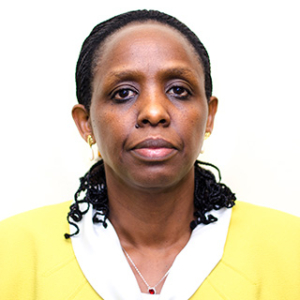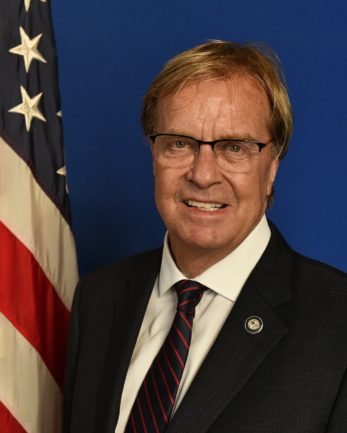A United Nations-led effort to jump-start progress on meeting global sustainability goals is raising fears among U.S. farm groups that it will lead to recommendations that denigrate U.S. farming practices and discourage meat consumption.
The initiative is known as the U.N. Food Systems Summit, a process intended to result in national commitments and global goals for progress between now and 2030 on 17 sustainability measures that range from eradicating hunger to ensuring the availability of clean drinking water and addressing climate change.
The process is building to a hybrid in-person and online “pre-summit” based in Italy next month and will culminate with a conference in New York in September. The Food Systems Summit's stated goal is to identify “solutions and leaders, and issuing a call for action at all levels of the food system, including national and local governments, companies and citizens.”
The initiative is led by Agnes Kalibata, an agricultural scientist and former Rwandan agriculture minister who is president of the Alliance for a Green Revolution in Africa, an organization that has embraced technology and innovation in building agricultural production and food security on that continent.

Agnes Kalibata (Photo: AGRA)
However, U.S. farm groups fear critics of large-scale agriculture have taken key positions in the process that will enable them to shape the recommendations in ways that would be detrimental to U.S. trade and the implementation of ag technology globally.
“This UN food summit from our standpoint is simply the latest iteration, chapter, battleground, you know, in an ongoing global debate around science and innovation, technology and innovation in agriculture and food production system,” said Chris Novak, president and CEO of CropLife America, which represents the crop protection sector.
While U.S. groups welcomed Kalibata’s role, their concerns focus on some key European figures involved in the UN process, including Martin Frick, a German who is serving as her deputy. Frick previously served as director of the climate, energy and tenure division at the UN Food and Agriculture Organization.
Another concern is the leadership of five “action tracks” including one assigned to develop recommendations for sustainable food consumption. That track is led by Gunhild Stordalen, founder and executive chair of the EAT Foundation, which funded the 2019 EAT-Lancet recommendations that called for a global reduction in meat consumption.
In a recent report laying out potential “game-changing” solutions, Stordalen’s action track said “accelerating the diversification of proteins that are appealing, accessible, and affordable will be key to feeding 10 billion people within planetary boundaries by 2050.”
Among the potential “game changers” detailed by the action track's report: Accelerating “the scale-up of alternative proteins by building evidence on science-based targets, pathways, key challenges, and opportunities; developing strategies to scale up alternative protein production and consumption; and mobilizing cross-sector alliances to deploy these strategies at global and local levels.”
Kip Tom, who served as the Trump administration’s envoy to FAO and the UN World Food Program, believes the U.S. industry is right to worry about the direction the UN process will go, but told Agri-Pulse he’s increasingly doubtful that the participants can ultimately agree on meaningful recommendations.
He fears the European Union is trying to use the process to advance the goals of the EU’s Farm to Fork initiative, an effort to increase agricultural sustainability by decreasing producers’ access to farming technology like pesticides, fertilizers and antibiotics. But he also believes bureaucratic inertia and infighting are undermining the work.
“It's not going the direction we want it to go, but the reality is the bureaucracy that's embedded within this organization is really slowing it down to accomplish any goal,” Tom said, citing what he described as discussions that have become emotional at recent meetings. He believes the process has also lacked the strong leadership it would need to deliver a comprehensive agreement on recommendations.
But that doesn’t mean the Food Systems Summit’s work will be discarded. There is a good chance, he said, that its work around climate change gets folded into the separate work being done to reach a new agreement to slash global greenhouse gas emissions by 2030. Those discussions will culminate at the UN Climate Change Conference, known as COP26, this November in Glasgow.
“I think what comes out of (the summit) is going right to COP," he said. "There's one place that we all seem to coalesce and that's around climate.”
Kalibata’s UN staff didn’t respond to a request for an interview with her, but she recently talked about the Food Systems Summit in a webinar with Catherine Bertini, a former leader of the UN World Food Program and 2003 World Food Prize laureate.
Kalibata emphasized the need to include young people and craft solutions that fit local situations. Kalibata, who has a doctorate in entomology from the University of Massachusetts, also noted the summit has a scientific advisory committee that is “trying to make sure that whatever we are saying is grounded in the realities of science.”
But she seemed to downplay somewhat the impact of the action track reports, stressing there is “no one group that is right.” Instead, she said the goal of the summit process was to “listen to the whole world” and then reach broad agreement on three or four priority recommendations that, as she put it, “would actually shift things.”
She suggested there will be other recommendations that come out of the process “that are going to be context-specific, that are going to be region-specific. Those will also be available.”
The U.S. industry’s ability to shape the outcome of the deliberations has been hampered in part by the change in administration in the middle of the UN initiative information-gathering process. U.S. groups have been largely dealing with career staff rather than political appointees at the Agriculture Department and State Department, one industry official said.

Kip Tom
A coalition of groups, including major commodity, seed and agrochemical organizations, appealed to the Biden administration in April to help shape the outcome of the Food Systems Summit to ensure it reflects international consensus and recognizes the importance of “science, innovation and technology” and doesn’t do things like denigrate certain foods or diets.
Interested in more news on farm programs, trade and rural issues? Sign up for a four-week free trial to Agri-Pulse. You’ll receive our content - absolutely free - during the trial period.
“Without sustained, political-level U.S. leadership (in addition to important and ongoing work by career staff), the FSS’s outcomes could miss opportunities to support proven agricultural practices that must be part of the solution to tackle food insecurity and protect our environment,” the groups said in a letter to Secretary of State Antony Blinken and Agriculture Secretary Tom Vilsack. The State Department is the lead agency for UN issues.
“In fact, encouraging shifts to less efficient production practices could worsen food insecurity and damage environmental outcomes,” the letter goes on.
In an extensive response to questions posed by Agri-Pulse, USDA said the summit “is a valuable opportunity to focus the world’s attention on these shared goals and to act with urgency for the health of the planet and the wellbeing of current and future generations.”
The department said the U.S. contributions to the summit “will focus on improved nutrition for the most vulnerable, climate-smart agriculture and food systems, and inclusive food systems.”
USDA also emphasized the need for technology and research addressing climate change:
"The United States is committed to bringing the best science and innovation to grow climate-smart agricultural production. The United States is a leader in agricultural research and development to improve productivity and promote more efficient and climate-smart use of natural resources in agriculture. By leveraging evidence-based innovation and science, including biotechnology, we can expand the toolbox for farmers, fishers and other producers to improve sustainability and resilience throughout food systems."
Deputy Agriculture Secretary Jewel Bronaugh will lead the U.S. delegation at July’s pre-summit. USDA is working with State as well as other agencies, including the U.S. Trade Representative, Environmental Protection Agency and Commerce Department, in planning for the summit.
In conjunction with the summit, USDA is conducting a “national food system dialogue,” a series of input-gathering sessions that launched Jan. 13, continued May 19 and will conclude June 30. The meeting next week “will focus on pathways forward,” USDA said.
USDA also has posted a compendium of actions that companies and trade groups say are being taken to improve the sustainability of U.S. agriculture. USDA and State Department officials also have met with industry representatives in recent weeks.
"We are seeing a stepped-up engagement by U.S. government," said a leader of the industry coalition, Constance Cullman, the president and CEO of the American Feed Industry Association. Because of the transition in administration, "they’ve been a little bit delayed but they are making up for that quickly," she said.
For more news, go to Agri-Pulse.com.


